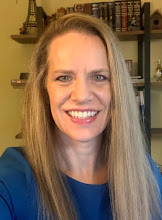I realize, as I reflect, I will fall short in that capacity for my sons too. But I honestly had not given that much thought before Leyla arrived. I know as boys there are parts of their journey that their father and the other men in their lives will need to take a leading role. But those differences are the norm in families. Perhaps that is why I felt more comfortable believing what my sons needed would naturally be there for them. However, I am less sure about that too as I watch my eldest enter his teens. The world I knew growing up as teen no longer exists and he will face challenges I didn't.
When we went to Ethiopia to bring home our daughter, we traveled with two other families who were also meeting their daughters for the first time. Both families had connections to where we live. Interestly, both mothers had grown up in the area although their families now live elsewhere. We discussed keeping the girls connected as much as we could. Each year since, we were able to get together with one of those families. They have a biological daughter Hazel (who accompanied her parents to Ethiopia) and their Ethiopian daughter Naima. Naima is about 6 months older than Leyla.
When we met our daughters, that age gap seems quite large. Leyla was a tiny 6 month old and Naima was a tall slim one year old, walking and starting to talk. I included some photos of the girls from that time in Ethiopia below.

 The first summer visit together the age difference had diminished but still was evident. Leyla was a few months past her first birthday and just mastering walking. Naima was closer to two and happily running and talking up a storm to her sister. Our boys really enjoyed meeting Naima and Hazel because it allowed them to connect to their sister's time in Ethiopia before she joined them. Dimitri went out of his way to form a connection with Naima who was a bit shy when we first arrived.
The first summer visit together the age difference had diminished but still was evident. Leyla was a few months past her first birthday and just mastering walking. Naima was closer to two and happily running and talking up a storm to her sister. Our boys really enjoyed meeting Naima and Hazel because it allowed them to connect to their sister's time in Ethiopia before she joined them. Dimitri went out of his way to form a connection with Naima who was a bit shy when we first arrived.This last summer, the age difference was barely evident. And they started to notice each other in a different way. Naima said to her mother, "Leyla has curly hair like me." It struck me this potentially was the beginning of a deeper connection. Only Leyla's brother Dimitri came a long on the visit (Damian had a soccer game and was disappointed he couldn't join us). Dimitri at thirteen was a hit with the four girls. He is wonderful with kids and pretty much will let them do anything so they have fun. And the girls took full advantage. The pictures are evidence of that..





Since that visit, Leyla asks me with some frequency to see the pictures we took. She will ask me "Can I see my friend Naima." She doesn't seem to tire of looking at the pictures of the fun times they shared. Something clicked with her and made an impression. I hope it is the beginning of a something she will be able to nurture and grow. Naima has a unique shared experience with Leyla. And it may be able to provide some of the answers or support they will both need as they grow beyond childhood and examine their history as well as their path forward.
Like Leyla, I enjoy looking at these pictures because of the joy that exudes from them but also because I want Leyla to have all that she needs for her path - especially what I know I cannot provide. And these pictures make me hopeful . . .






%5B1%5D.JPG)


.JPG)



















